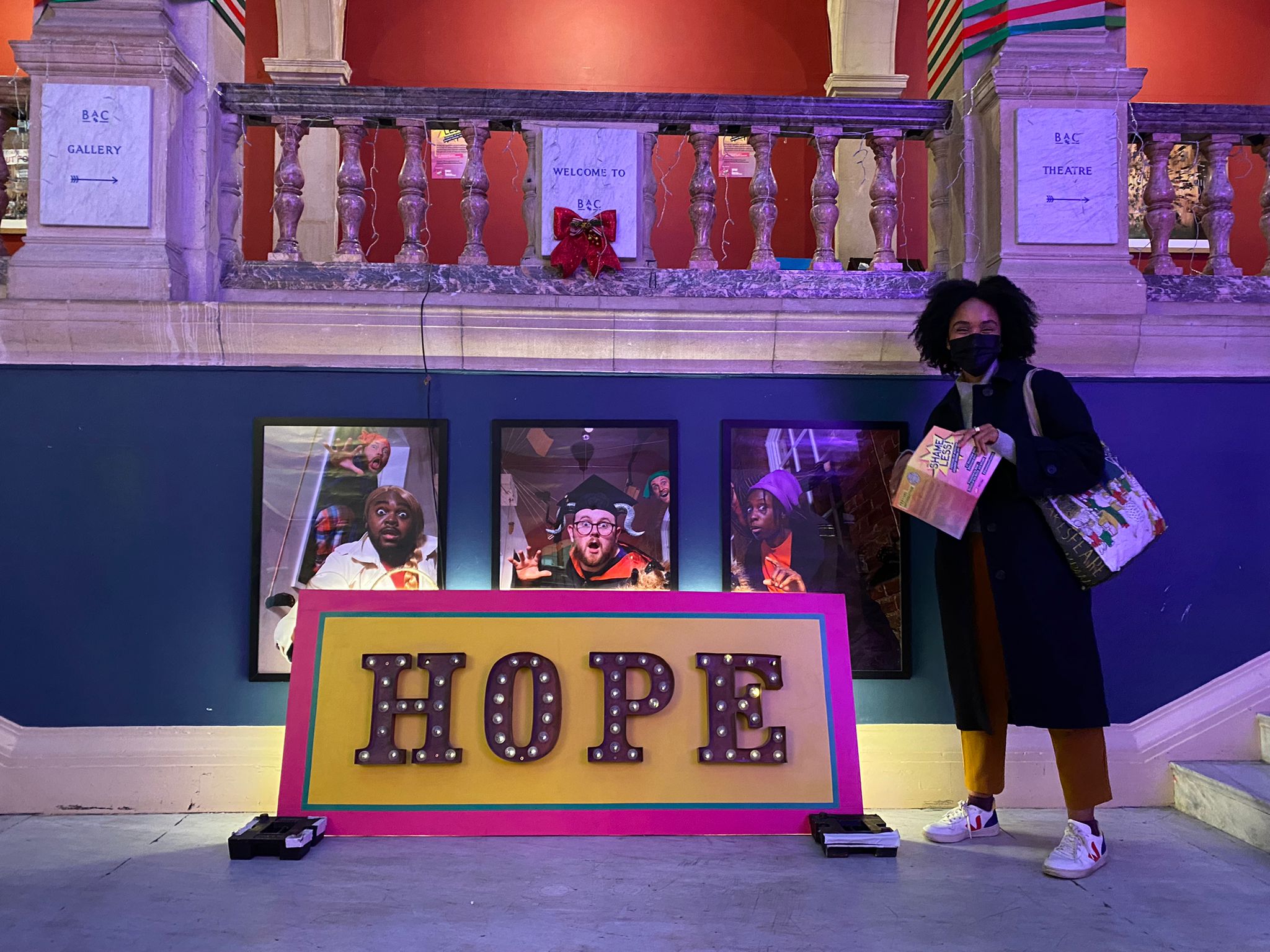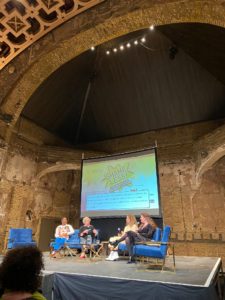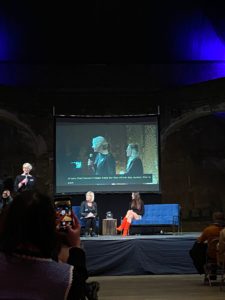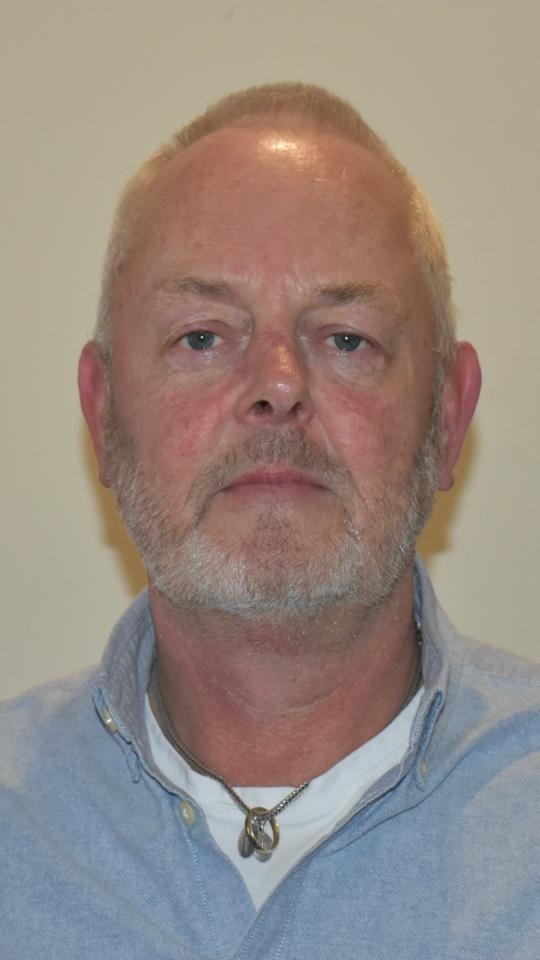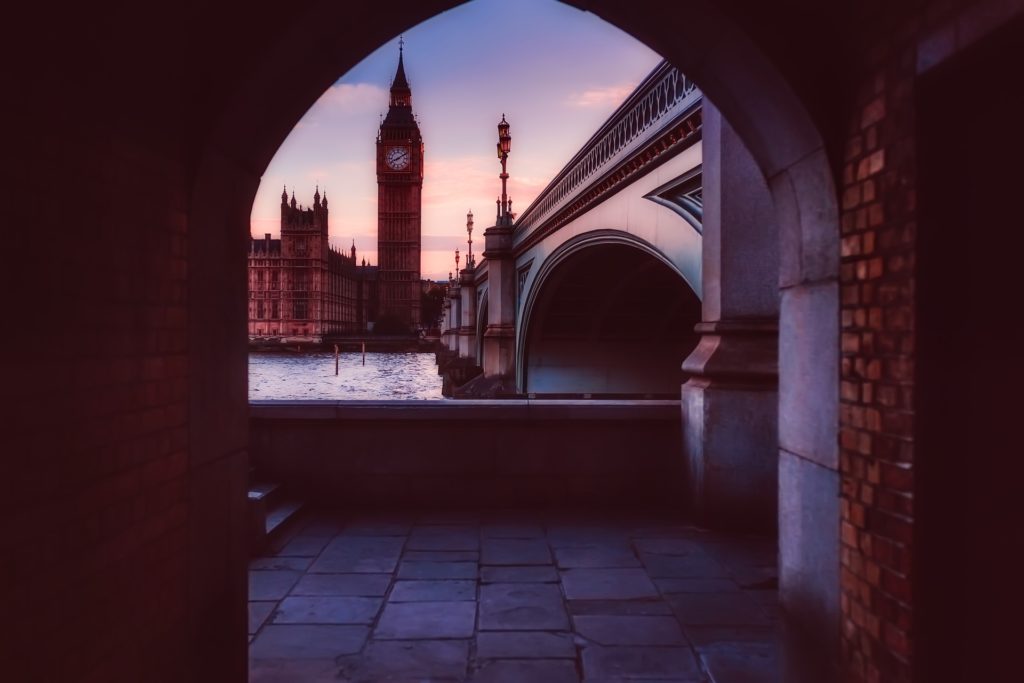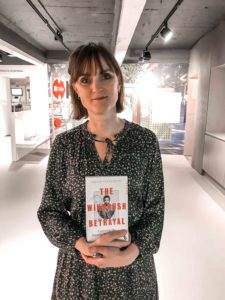On Saturday 27 November, Birkbeck’s Sexual Harms and Medical Encounters project team hosted the Shameless! Festival with The Women of the World (WOW) Foundation. In this blog, Rebekah Bonaparte, a Communications Officer at Birkbeck shares her experience of attending the event.
Before attending the Shameless! Festival of Activism Against Sexual Violence I was not sure how I would leave feeling. With such an urgent and grave subject matter I wondered if I could really leave the festival feeling a sense of hope for a future free of sexual violence. Hosted by The WOW Foundation and Birkbeck’s Sexual Harm’s and Medical Encounters (SHaME) project, the festival combines arts, activism, and academia to confront and change attitudes towards sexual violence.
The festival took place in the Battersea Arts Centre on a bitterly cold and windy Saturday morning. Thankfully, once inside the atmosphere and building inspired a sort of warmth that was desperately needed on gloomy day in November. At the top of the grand staircase in the foyer I was greeted by the word, “Hope”, which was fitting as much of the day’s talks and activities inspired just that.
I first attended a talk titled ‘Power’ which delved into the power dynamics that exist in communities where sexual violence occurs, using both the experiences of the panellists and the government policies that exclude certain groups from reporting and getting justice for such crimes. I was struck by how, as a result of the hostile environment in Britain, migrant women were unable to access rape services for fear that they would be detained, demonstrating how wider policies have negative knock-on effects for all. The talk concluded with a powerful performance by Lady Unchained, poet Brenda Birungi.
Next was ‘The Rape Myths’, a panel discussion chaired by Birkbeck’s Professor Joanna Bourke with Rachel Thompson, Sarah Ozo-Irabor and Mary Morgan, where they highlighted and dispelled the rape myths that have entered public imagination and how this effects society. Set in the raw grandeur of the Grand Hall, the talk was candid and insightful, as academic research and experience was weaved together seamlessly, and ended with the advice that in order to counter rape myths, we can all start by educating ourselves and advocating in spaces that are safe for us to do so.
Following an hour of mandatory ‘Radical Rest’ where attendees and those running the festival were invited to take time for themselves, SHaME investigator George Severs led a panel discussion that discussed ‘Male Survivors and Masculinity’, with insights on how male victims deal with and process their trauma, as well as performances from fellow panellists, Tanaka Mhishi, poet and performer, and Beyond Equality representative Ben Hurst.
Aside from the talks, you could buy literature and tote bags from the Feminist Bookshop, hear from the researchers at the SHaME project, and speak to member of the survivors’ support organisation, The Survivors Trust. In between talks poets took centre stage on the ‘Hope’ box, where these artists performed to an intimate audience, lending to the collaborative and open nature of the festival.
In her final talk of the day Professor Joanna Bourke delivered her talk rather optimistically titled ‘How to deliver a rape free world’, in which she presented a solution that celebrated individual differences and moving beyond individual identities to unify under one goal: ending sexual violence.
At the beginning of the day, I was reminded of the quote by American writer and poet, Audre Lorde, who said “When we speak, we are afraid our words will not be heard or welcomed. But when we are silent, we are still afraid. So, it is better to speak.” And that played on my mind throughout the day, how shame is often what keeps people silent, so to hear such candid and informed conversations discussed in what felt like a safe space, I felt, invited people to not feel shame or shamed about the realities of what they have faced. This ultimately, gave me hope that moving forward, we can one day see a rape free world.
Further information
